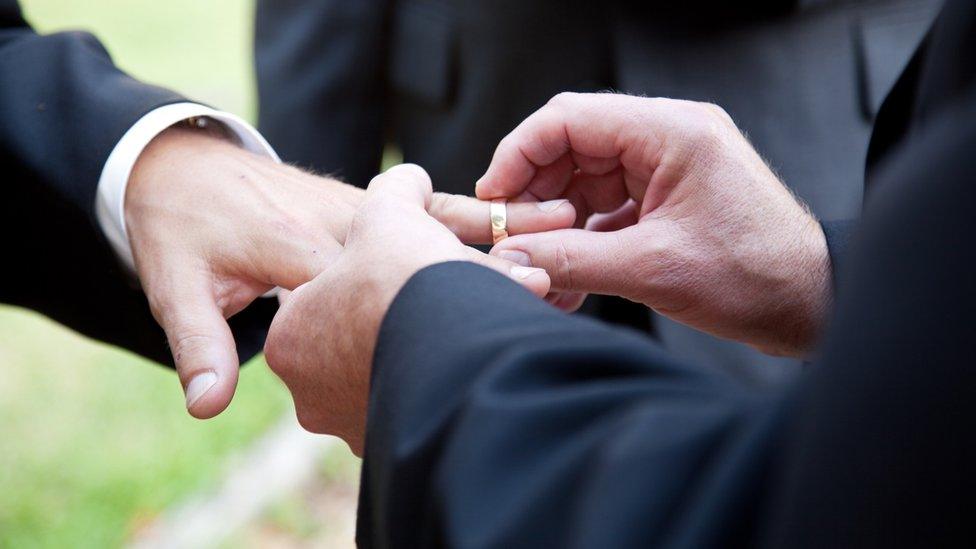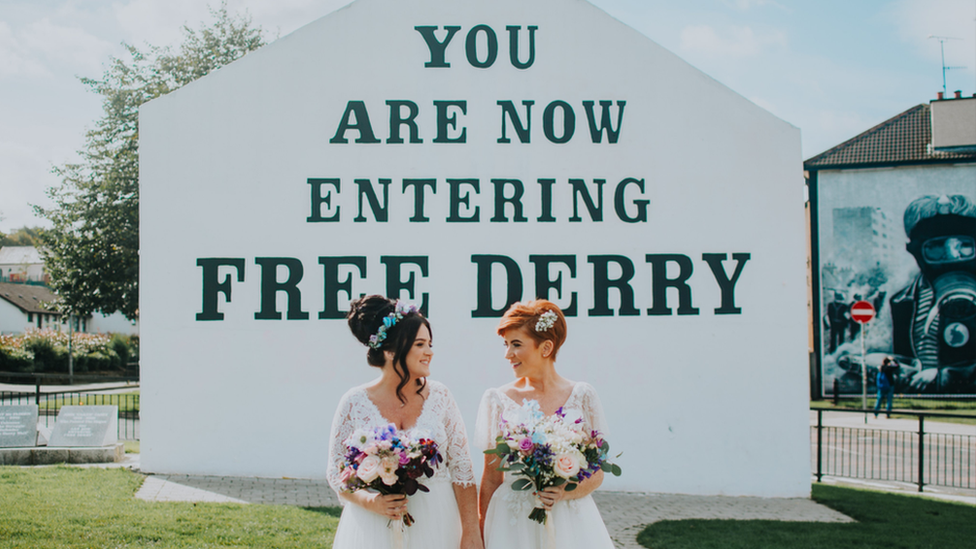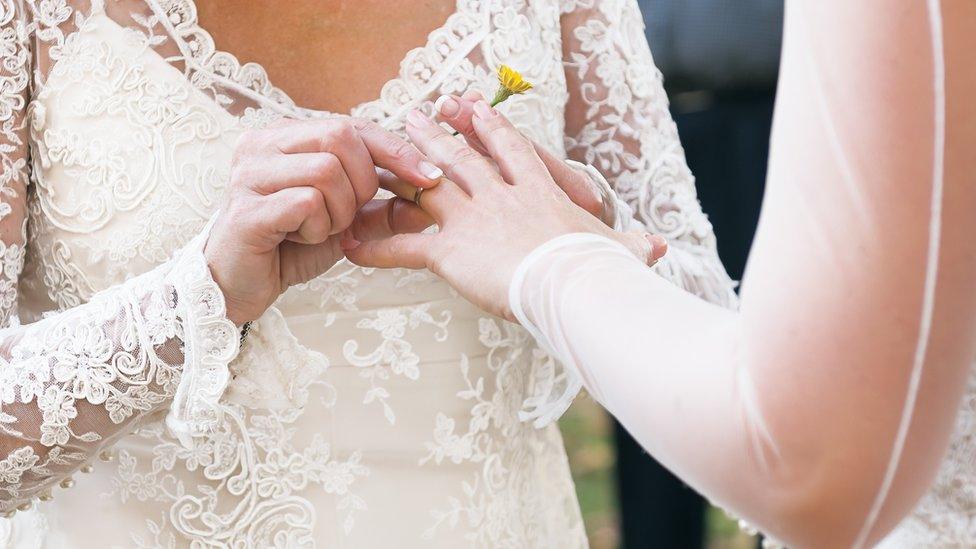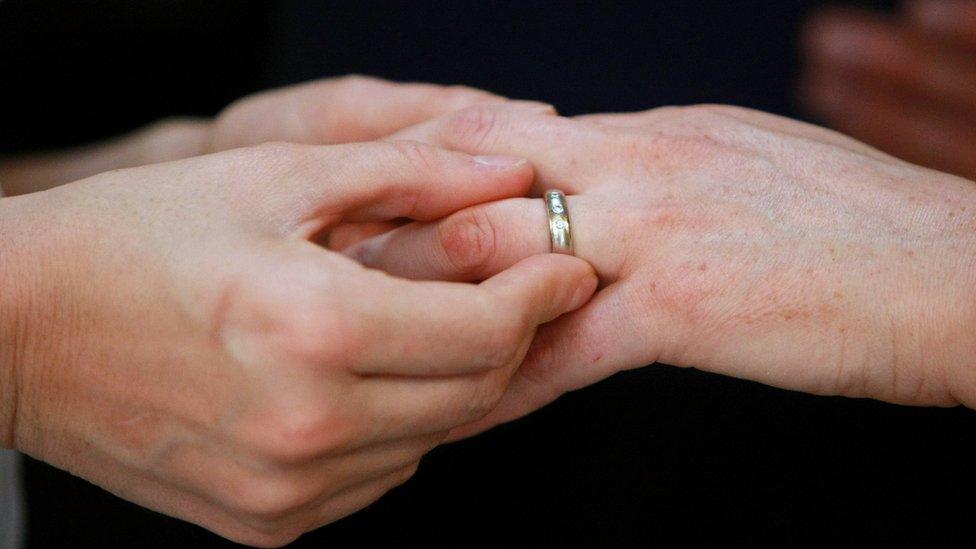Same-sex marriage now legal in Northern Ireland
- Published

Same-sex marriages will be legally recognised in Northern Ireland from today.
Same-sex marriage is now legally recognised in Northern Ireland.
From Monday, same-sex couples will be able to register to marry, meaning the first ceremonies will take place in February.
For couples who are already married, their marriage will now be legally recognised in Northern Ireland.
However, those who are already in a civil partnership will not be able to convert it to a marriage at this stage.
The Northern Ireland Office is set to begin a consultation later this year about converting civil partnerships and the role of churches in same-sex marriages.
Heterosexual couples will also be able to enter into civil partnerships from today.
'Historic day'
When the Stormont assembly collapsed, marriage equality campaigners turned their focus to Westminster.
In July 2019, MPs backed amendments which required the government to change abortion laws and extend same-sex marriage to Northern Ireland if devolution was not restored by 21 October 2019.
An amendment was made to the Northern Ireland (Executive Formation etc) Act 2019, external by the Labour MP Conor McGinn saying that the government had to legislate for same-sex marriage in Northern Ireland.
Speaking to BBC News NI, Mr McGinn said "everyone who values equality, love and respect can celebrate today".
"It's a good day for Northern Ireland, an important day for citizens' rights across these islands and an exciting day for same-sex couples who can now register to marry," he said.
Patrick Corrigan from Amnesty International said it was a "historic day for equality and human rights in Northern Ireland".
"For too long, LGBT+ people in Northern Ireland have been treated as second-class citizens. So, today is an incredible moment for same-sex couples who can finally marry and have their relationships recognised as equal," he said.
BBC News NI looks at the history of Northern Ireland's same-sex marriage debate
Same-sex marriages have been allowed in England, Scotland and Wales since 2014, but Stormont did not legalise them.
In November 2015, a vote on the issue in the devolved assembly resulted in a numerical majority in favour of same-sex marriage for the first time.
However, the DUP blocked a change in the law by using a veto known as the Petition of Concern.
Five years of campaigning
Because couples have to indicate their intention to marry 28 days before doing so, the first weddings are expected to be held in the week of Valentine's Day.
John O'Doherty from the Love Equality campaign said this was the "culmination of five years of campaigning for marriage equality and marks an enormous step forward for LGBT+ people".
"There remain a number of issues to be addressed before couples in Northern Ireland have the same rights as those in other jurisdictions," he added.
"However, we celebrate this remarkable achievement with the thousands of people who made their voices heard and demanded change in spite of the many barriers placed in their way."

Danielle Doherty and Emma Bradley standing outside Free Derry corner on their wedding day
A Londonderry couple have expressed their joy that their marriage is now legally recognised in their home city.
Danielle Doherty and Emma Bradley got married in County Donegal in 2019.
"It just shows you the change that's happened over the last few years, from it being a dream to reality," said Ms Doherty.
"We are not undermining the value of a civil partnership, but for us, we wanted a marriage.
"We would've loved to have gotten married in Derry, we love Derry, but it was never an option."
- Published18 August 2019

- Published2 November 2015
